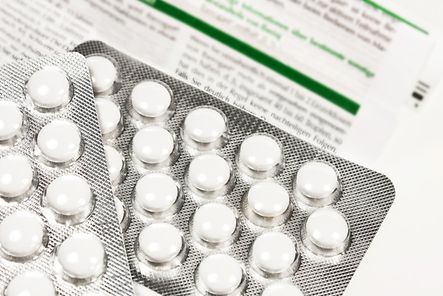
Sustainability and transparency in the food industry
The impact of the EU Green Deal
The EU Green Deal is a comprehensive European Union program to promote sustainability and climate action. It was presented by the European Commission in December 2019 and aims to achieve a climate-neutral Europe by 2050.
To promote the transition to a sustainable economy, the EU Green Deal includes various measures and policy initiatives. In addition to climate and the environment as well as energy, transport and finance, the focus is also on industry and agriculture.
From the farm to the table
One of these initiatives is the strategy "From farm to fork" (EN: "From farm to fork"). With this, the EU wants to healthier and more sustainable food system that that secures the food supply but also reduces the negative impact of the agricultural and food sector on the environment. In addition, a change in food consumption is intended to reduce the carbon footprint of products and better protect the population against crises such as pandemics, droughts and floods. Future generations should also be able to benefit from a safe food system.
EU Forest Strategy
With the "EU Forest Strategy", the EU is pursuing the goal of reducing greenhouse gas emissions by at least 55% by 2030. The regulations adopted as part of this strategy are intended to reduce global deforestation and their impact on the environment. For example, a regulation has been issued that requires proof for certain products, such as cocoa, coffee, oil palms and many others, that their production has not resulted in deforestation or degradation of the forest ecosystem. Market participants and traders are required to be able to provide proof of this right up to the production site.
Action plan for the circular economy
Another important component of the EU Green Deal is the Action Plan for the Circular Economy. This focuses on sustainable products, empowering consumers and public purchasers and promoting a circular economy in which products are reused rather than destroyed at the end of their life cycle. This plan comprises 30 action points aimed at improving the reusability, reparability and recyclability of products. The digital product passport, which summarizes all relevant information from a product's supply chain and provides information on its environmental compatibility, is seen as one of the foundations in this context. As part of the Ecodesign Regulation for sustainable products the digital product passport is seen as a standardized instrument for various product groups in order to promote a sustainable circular economy, although the exact design has not yet been defined. A number of working groups have already been formed in various sectors to help define the content and processes. The mandatory introduction of a digital product passport is not planned for food, medicines and animal feed (European Commission - Questions and answers: Sustainable Products Initiative).
However, the basic idea of the digital product passport can be easily transferred to the food industry. The 'farm to fork' strategy and other related reforms set requirements for a sustainable supply chain in terms of the environmental footprint of food, the protection of forests and the traceability of raw materials. The recyclability of product packaging is also an important aspect of the circular economy.
However, the implementation of sustainability aspects is not possible without transparency. It therefore comes as no surprise that various food manufacturers are already committed to improving the transparency of their supply chains. One example of this is the initiative "Together for Carbon Labeling" initiative, which is dedicated to the standardized determination of the ecological footprint. However, in addition to compliance with various regulatory requirements, it has also been shown that transparency about a product can also increase consumers' interest in buying it or lead to a change in purchasing behavior. In general, there is a growing desire among consumers for more transparency and for products to be labeled with regard to their climate compatibility.
The enormous relevance of sustainability and environmental protection is evident in the various initiatives, strategies, regulations and reform packages of the EU Green Deal, but consumers are also already changing their mindset. A transparent supply chain and the provision of selected information therefore not only prepare a company for the future, but can also help to secure competitive advantages today.
Why we should start talking now
Connecting the various parties in your supply chain, as well as processing and providing the relevant information appropriately, may seem like a challenge at first glance. However, a transparent supply chain can already contribute to improving your own processes, gaining competitive advantages and achieving your business goals.
We would be happy to support you in your project with our portfolio of solutions and our experience as a system integrator and service provider for digital transformation. Get in touch with us!
Written by

Kimberly is a product strategist who focuses on digital applications in agriculture, healthcare, and retail. With experience in project management, she supports the development of practical solutions, from process digitization to the implementation of regulatory requirements.



